In the grand symphony of education, music programs play a vital role in nurturing creativity, discipline, and cognitive development. However, the success of these programs doesn’t rest solely on the shoulders of dedicated music teachers and enthusiastic students. It requires an entire community to come together, creating a harmonious blend of support that ensures the longevity and growth of music education. This article explores how to build community support for music education programs, engaging key players and creating partnerships that will help your program thrive.
The Power of Partnerships in Music Education
When it comes to advocating for music education, strength lies in numbers. Building partnerships with local businesses, organizations, and individuals who share your passion for music can amplify your voice and create a powerful support network.
Identifying Potential Partners
Start by looking within your school community. That parent who runs a local business or works for a large corporation could be your ticket to new opportunities. Don’t be afraid to reach out and explain how a partnership could benefit both parties.
Remember, successful partnerships are a two-way street. While seeking support for your music program, consider how you can provide value to your partners. This could include:
– Offering performances at company events
– Recognizing sponsors during concerts
– Featuring partner logos in program materials
By fostering these relationships, you create a network of advocates who can help generate new ideas and address challenges facing music education.
Engaging Parents: Key Advocates for Music Programs
Parents are often the most passionate supporters of music education. By actively involving them in your program, you can create a powerful force for advocacy and support.
Effective Communication Strategies
Establish open lines of communication with parents. Regular updates about their child’s progress, upcoming events, and program needs can keep them engaged and informed. Consider using various channels such as:
– Email newsletters (weekly or bi-weekly)
– Social media updates (Facebook groups, Instagram stories)
– Parent-teacher meetings (both scheduled and impromptu)
Opportunities for Parental Involvement
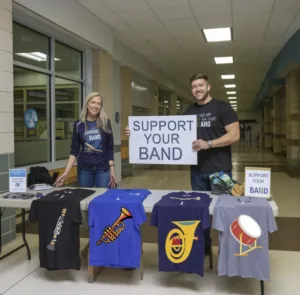
Make parents feel like an integral part of the music program. Invite them to:
– Attend concerts and performances
– Volunteer for events or fundraisers
– Join a parent booster organization
– Assist with costume or set design for performances
Educating Parents on Music Education Benefits
Arm parents with information about the benefits of music education. Share research on how music enhances cognitive skills, improves academic performance, and contributes to social-emotional development. For instance, a 2023 study published in the Journal of Research in Music Education found that students involved in music programs scored an average of 23% higher on standardized tests compared to their non-music peers.
Aligning Music Education with Administrative Goals
School administrators play a crucial role in supporting music education. However, they often face tough decisions when it comes to allocating resources. Your approach to engaging administrators should focus on demonstrating how music education aligns with broader educational goals.
Presenting Data-Driven Arguments
When advocating for music programs to school administrators, it’s essential to present research and data that highlight the positive impact of music education. This can include:
– Improved academic achievement across subjects
– Increased attendance rates
– Higher graduation rates
– Enhanced student engagement and school climate
For example, a report from the National Association for Music Education showed that schools with music programs have an estimated 90.2% graduation rate, compared to 72.9% in schools without such programs. Additionally, schools with music education boast a 93.9% attendance rate versus 84.9% in schools lacking these programs.
Showcasing Program Success
Invite administrators to concerts and performances to see firsthand the value of music education. During these events, take a moment to publicly recognize their attendance and thank them for their support. This not only demonstrates the program’s success but also reinforces the administrators’ role in that success.
Connecting Music Education to School Objectives
Show how your music program contributes to the school’s overall mission and goals. Whether it’s improving student engagement, fostering creativity, or building community connections, highlight how music education supports these objectives. Create a presentation or report that directly links your program’s activities to the school’s strategic plan.
Community Outreach Strategies for Music Education Advocacy
Extending your advocacy efforts beyond the school walls can create a broader base of support for music education in your community.
Engaging Alumni
Former students can be powerful advocates for your music program. Reach out to alumni and invite them to:
– Share their success stories through video testimonials
– Mentor current students in monthly workshops
– Contribute financially or through in-kind donations to an “Alumni Support Fund”
Collaborating with Local Arts Organizations
Partner with local symphonies, theaters, or community music groups. These collaborations can provide:
– Performance opportunities for students at professional venues
– Access to professional musicians as mentors through a “Musicians in Residence” program
– Shared resources and equipment, reducing costs for both parties
Leveraging Media and Social Platforms
Become your program’s biggest PR advocate. Use various media channels to showcase your students’ achievements and the impact of music education:
– Reach out to local media for coverage of concerts or special events
– Utilize social media platforms like Twitter, Facebook, and Instagram to share success stories and upcoming events
– Create a dedicated YouTube channel for your music program, featuring student performances and behind-the-scenes content
Encourage community members to share their own experiences with music education using a specific hashtag, creating a ripple effect of advocacy.
Innovative Resources for Enhancing Music Education
In today’s digital age, there are numerous online tools that can support and enhance your music education program. One such resource is Practicing Musician, an online platform that offers comprehensive music education tools for teachers, students, and parents.
Benefits of Online Music Education Tools
Platforms like Practicing Musician provide:
– Access to a wide range of instruments and musical styles
– Self-paced learning options for students
– Tools for tracking student progress and engagement
– Resources for parents to support their children’s musical journey at home
Integrating Technology in Music Programs
Consider incorporating these digital resources into your curriculum:
– Use online practice logs to encourage consistent at-home practice
– Implement virtual masterclasses with professional musicians
– Create digital portfolios of student performances and progress
By embracing these innovative tools, you can extend learning beyond the classroom and provide students with more opportunities to engage with music.
Conclusion
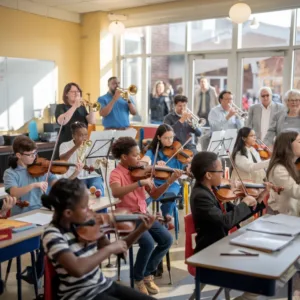
Building community support for music education programs is an ongoing process that requires dedication, creativity, and persistence. By fostering strong relationships with parents, engaging administrators, building partnerships, and reaching out to the broader community, we can ensure that music education continues to thrive and positively impact students’ lives.
Remember, every small action contributes to the larger symphony of support. Whether it’s a parent volunteering their time, a local business sponsoring an event, or an administrator championing your program, each effort helps to create a rich and vibrant musical education experience for students.
As you work to build your supportive community, consider taking these immediate steps:
1. Reach out to three local businesses this week to discuss potential partnerships.
2. Schedule a meeting with your school administrator to present the latest data on music education benefits.
3. Create a social media campaign to showcase student achievements and upcoming events.
4. Explore online resources like Practicing Musician to enhance your program’s offerings.
By orchestrating a network of support and utilizing innovative resources, we can ensure that the transformative power of music education continues to resonate in our schools and communities for generations to come. Start today, and watch your music program flourish with the backing of a supportive and engaged community.
This blog is generated from material covered in the PM professional development session: “Advocating for Music Programs” presented by Troy Peterson

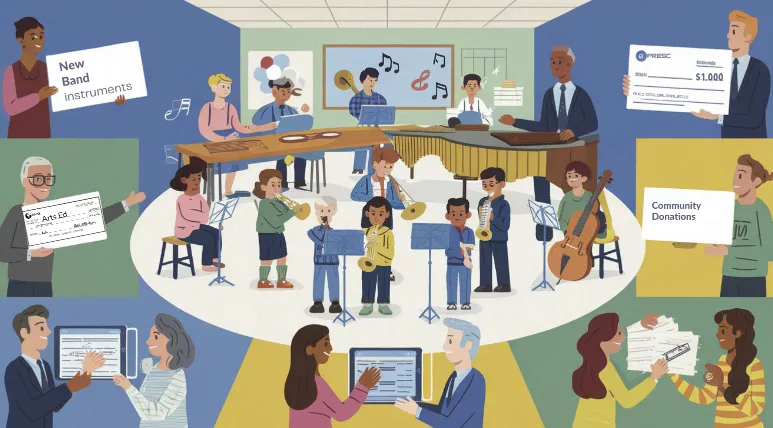

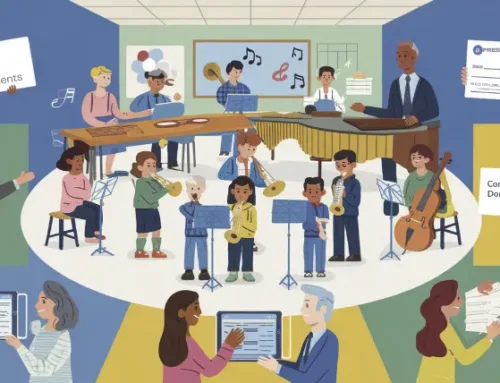
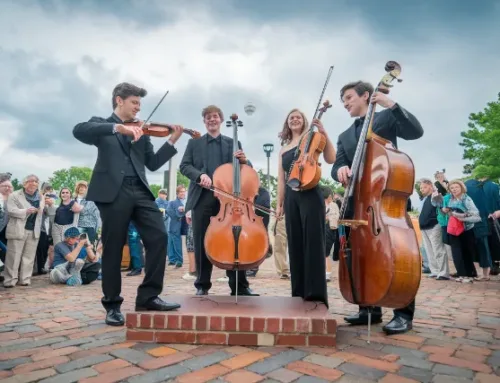
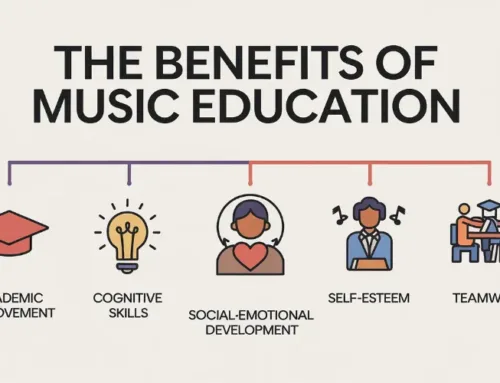
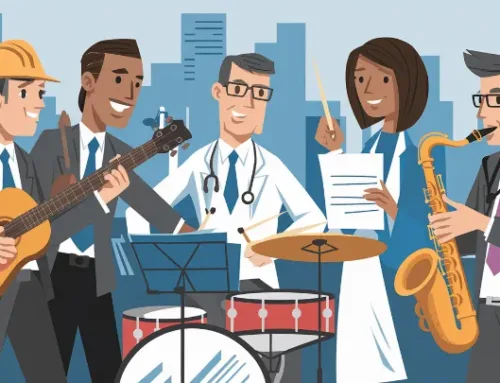

Leave A Comment
You must be logged in to post a comment.